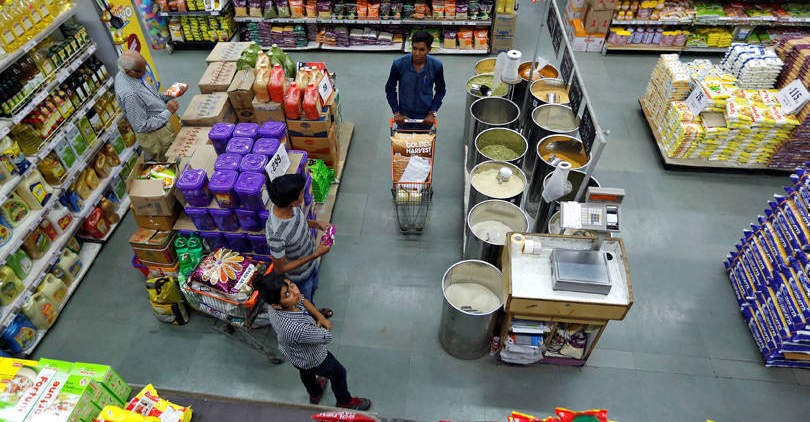
Retail sales in India can recover by May, if lockdown not extended: study


Retail sales in India can easily recover from the first week of May, if the Covid-19 lockdown is not extended, a report by Singapore-based Capillary Technologies, a software-as-a-service (SaaS)-based platform that focuses on retailers, said.
The country-wide 21-day lockdown was announced by prime minister Narendra Modi on March 24 to contain the Covid-19 outbreak. It is expected to end on April 14.
Read: Coronavirus India LIVE Updates

The study analysed 10,000 stores across India, Middle East, China and Singapore before and after the lockdown or similar measures were implemented.
In India, until March 16, there was no significant dip in consumer retail sales and walk-ins compared to last year, due to festival shopping, the report said. However, consumer retail sales dropped 46%, with a 55% fall in the number of customers per store from March 17-25, it added. The company said it expects the trend to continue if the lockdown is extended.
Retailers in the country could benefit from taking the omni-channel route, the study said. Some omni-channel Chinese apparel brands, such as Peacebird, Gloria and Youngor experienced a consistent increase in their online sales despite the uncertain in-store sales, the study said.

“This is a very trying period for retailers across the globe. Reports suggest that it will take five-six months for the world to recover completely from the impact of this pandemic,” Aneesh Reddy, CEO of Capillary Technologies, said.
In China, which was under lockdown from January 26 to March 5, there was a large short-term impact on the consumer market and retail sales of goods fell sharply, the study said.
From January to February, the total offline retail sales of consumer goods, automobile and petroleum goods in the country fell 20.5%, 37% and 26.2%, respectively, year-on-year, the report said. Overall, the study found that there was a 65% drop in average sales per store and a 79% decrease in customers per store, year-on-year.

The country witnessed an uptick in sales and the number of customers per store from March 6, a day after the lockdown was lifted in the country, the report said. The “probable recovery period” witnessed a 22% increase in sales and 43% increase in the number of customers compared to the lockdown period, which is almost on par with last year’s figures for the same period, the report said.
The retail sales in Singapore witnessed a perceptible drop, but it was not as significant as China’s. This could be because Singapore managed to contain the infection fairly well, the study said.
However, it must be noted that the country has not imposed a lockdown so far -- it did, however, issue an orange Disease Outbreak Response System Condition (DORSCON) alert from January 24 to February 27. The colour-coded framework shows the current situation of the disease in the country, with orange being the penultimate level in terms of severity.

In that period, retail sales in Singapore slumped 45% and the number of customers per store was 26% lower, compared to the same time last year, the study said.
Post March 1, the country saw a 34% decline in sales per store and a 10% drop in the number of customers per store, compared to the same period last year, it said. This could be due to the reluctance in customer spending and the adverse impact of the pandemic on tourism, it added.
“China has set remarkable precedence in not just battling the spread of the virus but also supporting the economy. In India, we are still in the critical phase of a national lockdown. While the Indian government is doing everything in its power to battle the virus from their end, retailers can also look up to their peers in China and Singapore to save their businesses and chart a quick road to recovery,” Reddy said.

